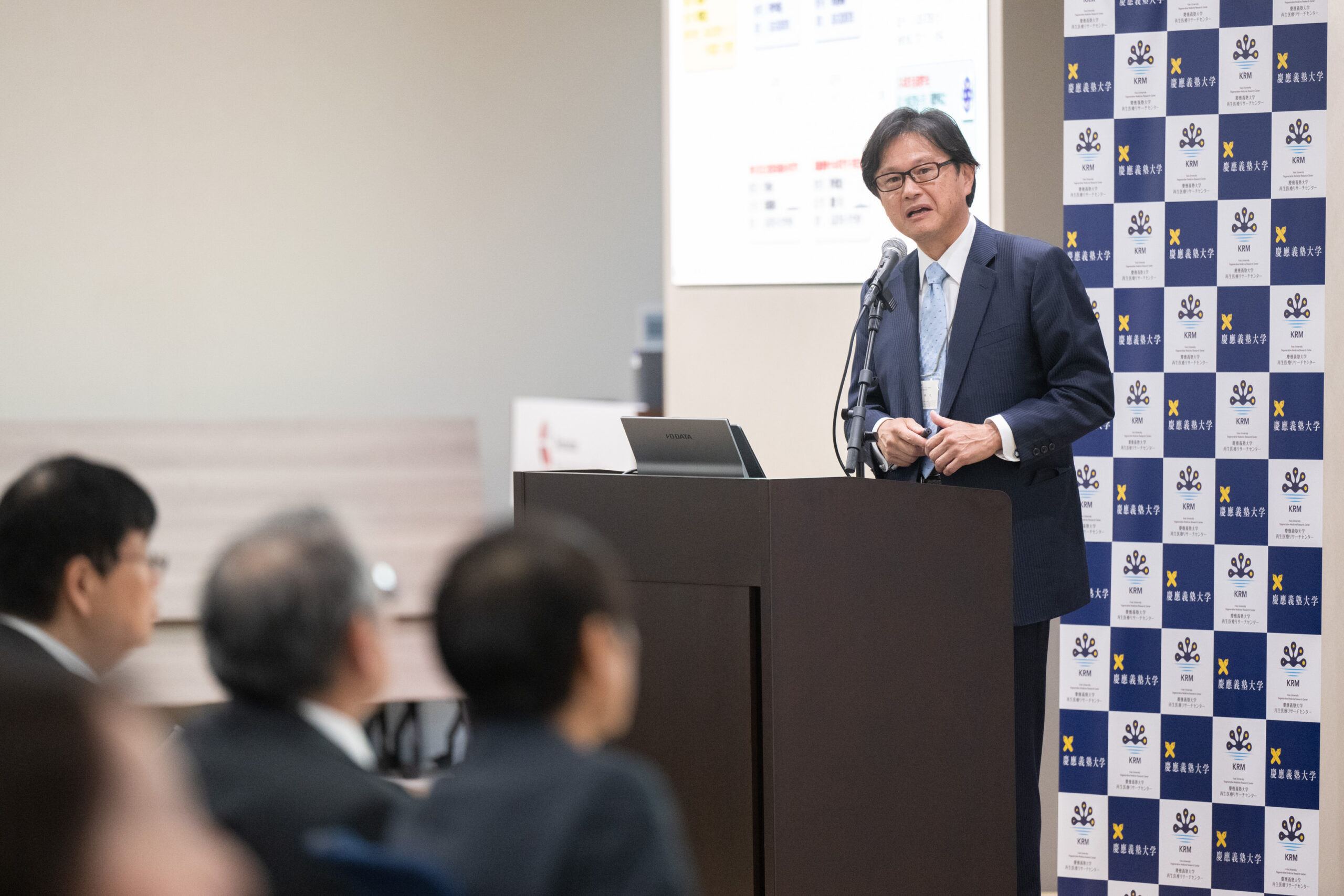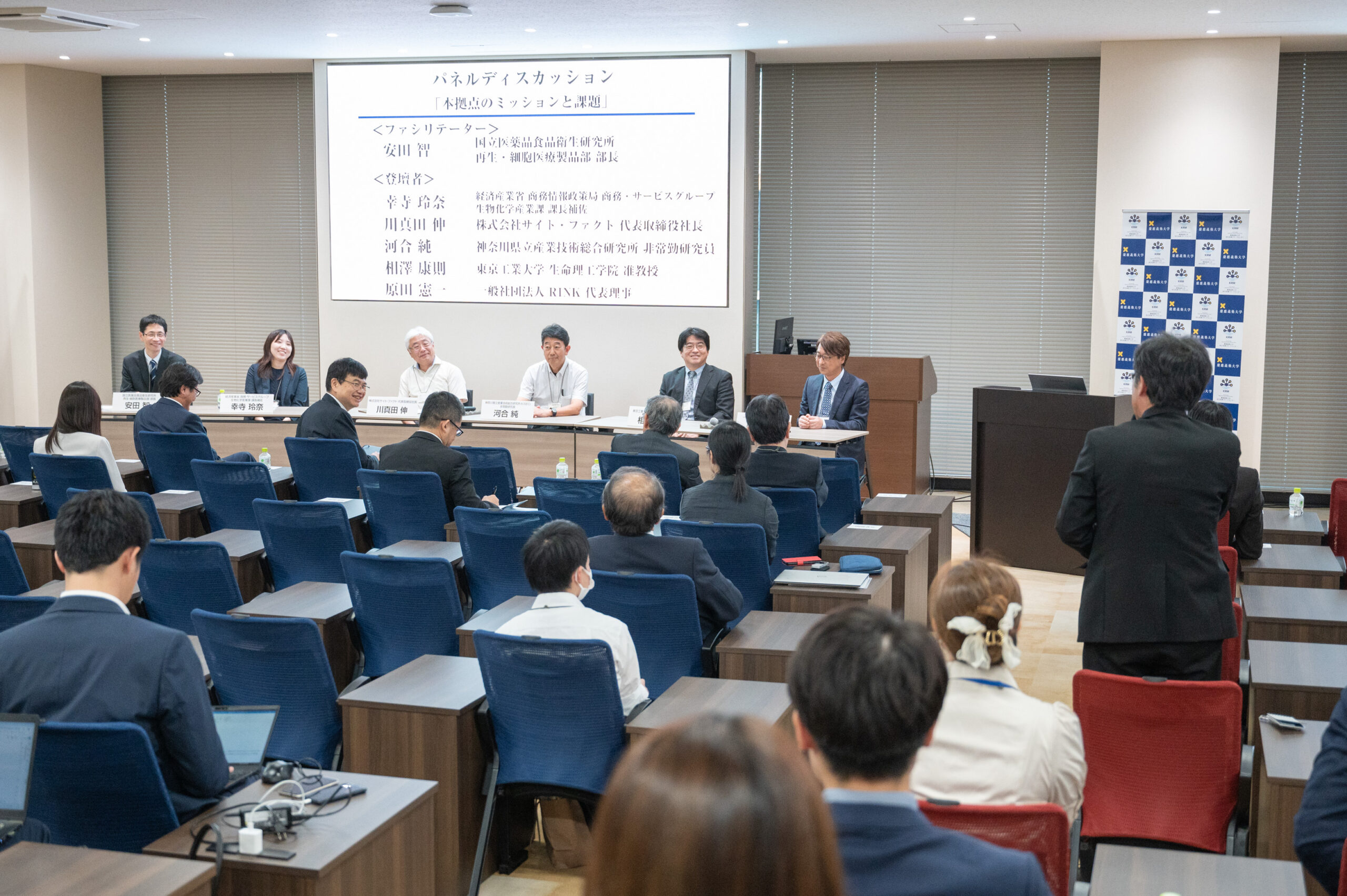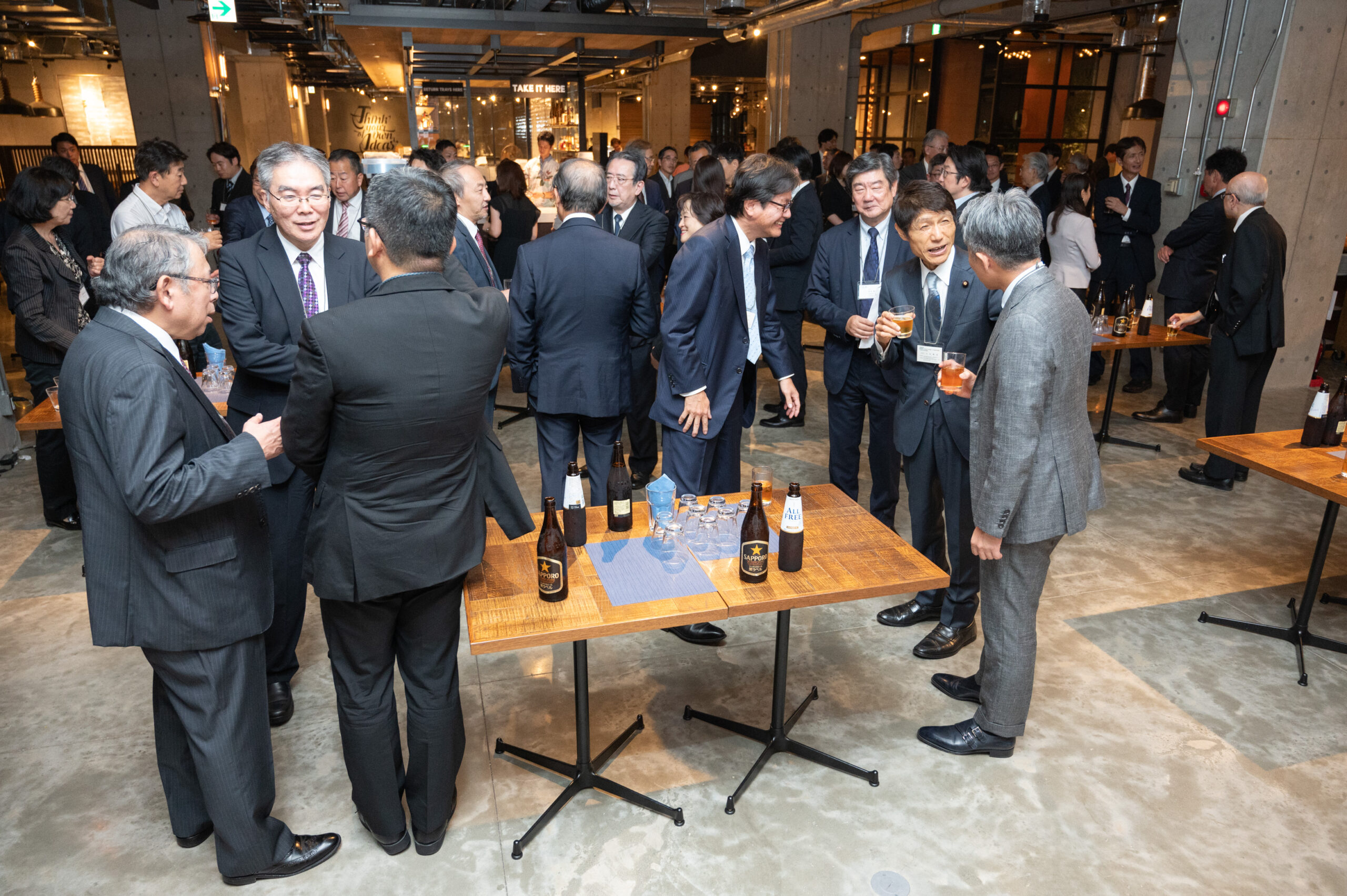2024/09/26
Reports
Opening ceremony for KRM & Kick-off Symposium for CReM TONOHANE
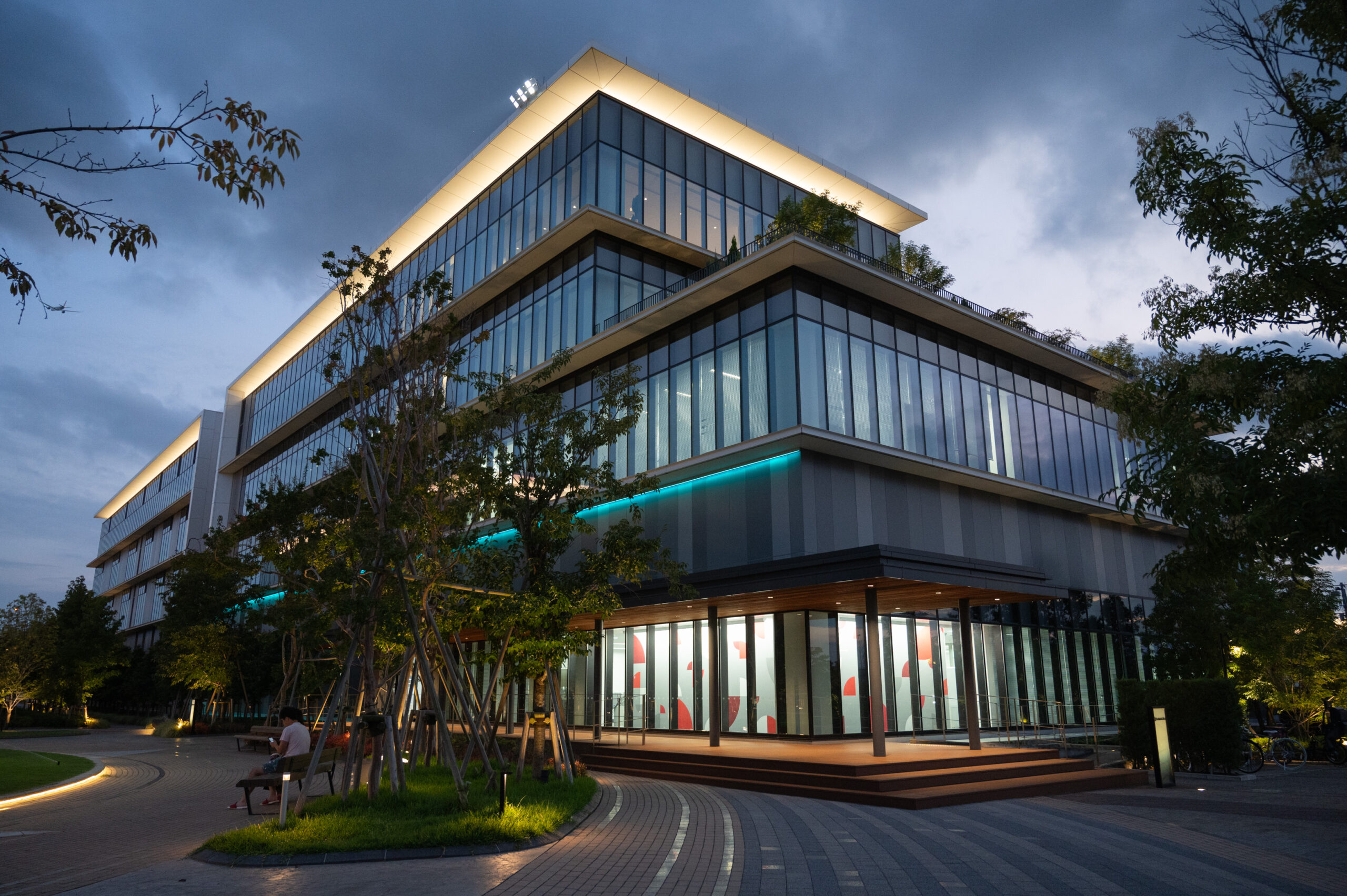
The Open Ceremony for Keio University Regenerative Medicine Research Center(KRM)&
Kick-off Symposium for the Cluster for Regenerative Medicine in Tonomachi Haneda(CReM TONOHANE)
were held at Shimadzu Tokyo Innovation Plaza on Wednesday, September 26, 2024.
Keio University Regenerative Medicine Research Center(KRM)
Keio University Regenerative Medicine Research Center(KRM) aims to
contribute to the promotion of human health and welfare through the advancement and development of regenerative medicine, disease treatment and prevention, and human resource development.
Specifically, this includes providing personalized medical care, modeling various diseases, including sporadic diseases, and elucidating their pathology, creating regenerative medicine technologies, and drug discovery. In particular, iPS cell drug discovery has the potential to provide new approaches to diseases for which no treatments existed until now, and is one of the important research areas.
KRM respects free and creative ideas and strives to foster an environment that fosters cutting-edge and original research.
Also, KRM places great emphasis on nurturing the next generation of researchers and engineers, and hopes to produce even greater results by bringing together talented people from Japan and overseas and bringing together their diverse knowledge and experience. For the clinical application of regenerative medicine and iPS cell drug discovery, researchers must address issues such as biomedical ethics, the handling of genomes, cells, tissues, and organs, and ensuring quality and safety.
To solve these issues, collaboration with a variety of related research fields is essential. KRM aims to act as a bridge for this, promote exchanges and collaborative research among researchers, and create synergy.
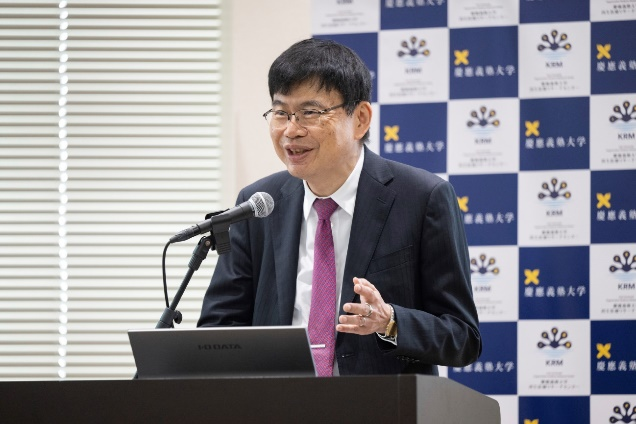
KRM has already begun to produce world-class results in research on spinal cord regeneration and neurodegenerative diseases such as ALS (amyotrophic lateral sclerosis) and Alzheimer’s disease. By making full use of cells and genes, KRM aims to address unmet medical needs for which no treatment has existed until now, and will play a leading role in building the strongest ecosystem in the medical and life science fields in the Tokyo metropolitan area of Japan.
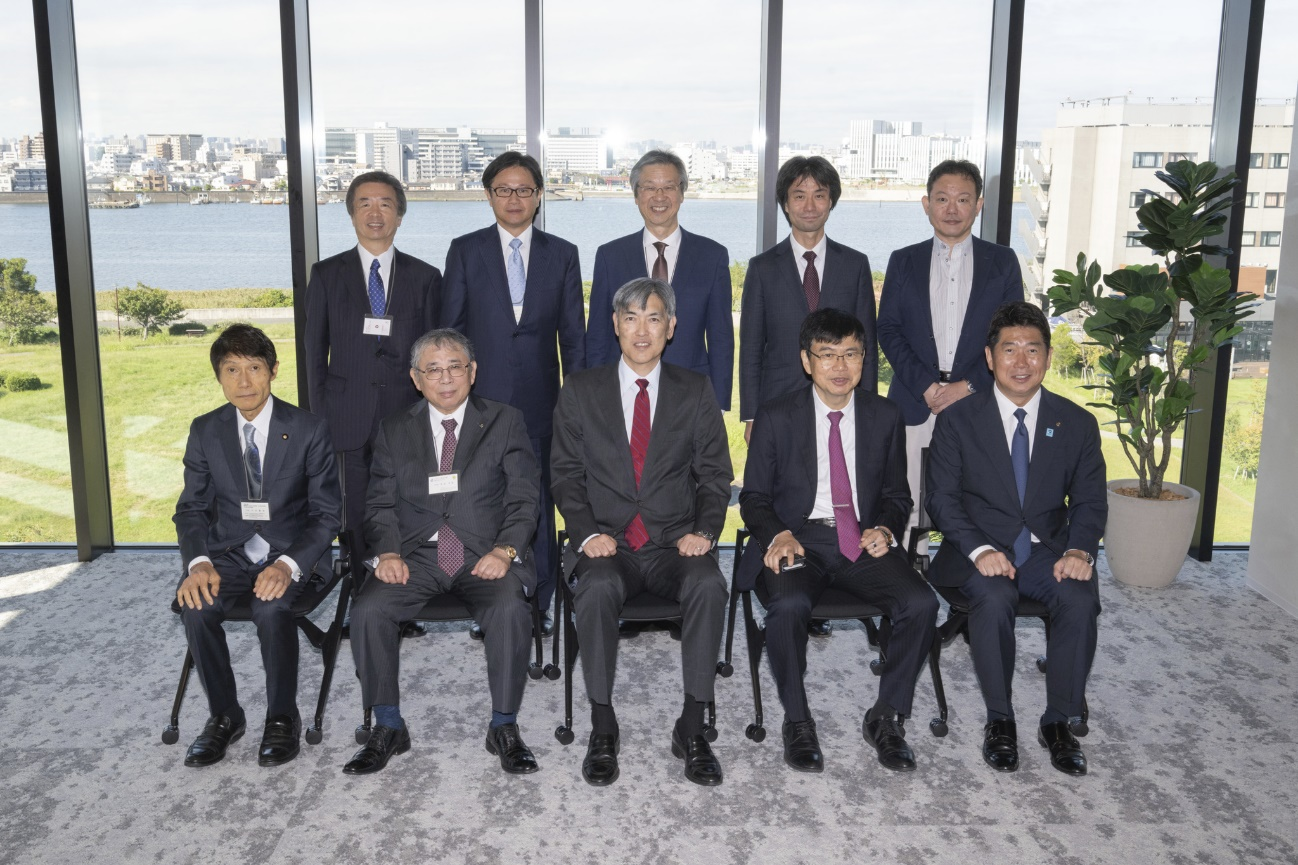
※【Website for KRM】 https://krm-rc.jp/
※【Reports for KRM Opening Ceremony】 https://www.keio.ac.jp/en/news/2024/Oct/25/48-162645/
The Cluster for Regenerative Medicine in Tonomachi Haneda
The Cluster for Regenerative Medicine in Tonomachi Haneda(CReM TONOHANE) was、
created as a platform to accelerate the real-world application and global development of regenerative medicine and cell therapy.
It is located in the central area between Tonomachi District, Kawasaki City, in Kanagawa Prefecture, and Haneda District in Ota Ward of Tokyo.
The cluster has been selected as an indirect recipient of the Ministry of Economy, Trade and Industry’s “Research Grant for Projects that Develop an Environment Conducive for Social Implementation of Regenerative Medicine, Cell and Gene Therapy” under the supplementary budget for fiscal year 2022. With cell samples provided from hospitals, including the Keio University Hospital, research institutions at Tonomachi and Haneda conduct quality analysis and standardization to establish a set of scientific criteria for the evaluation of cells. Based on these criteria, cells for regenerative medicine products will be manufactured, with the ultimate goal of providing regenerative medicine treatment at the Fujita Health University Haneda Clinic and the Keio University Hospital. The Tonomachi secretariat office is located in the Keio University Tonomachi Town Campus while the Haneda District secretariat office is located in the Fujita Medical Innovation Center Tokyo, thereby facilitating smooth and efficient operations for the cluster.
At the symposium,
Professor Yashiro Yoshimi, the director of the cluster’s planning division and professor at the Fujita Health University Integrated Education and Development of Research Talent Center, delivered the opening remarks and served as the facilitator for the session. Professor Masaya Nakamura from the Department of Orthopaedic Surgery at the Keio University School of Medicine, who is also the chairman of the cluster’s steering committee, then gave an overview of the center’s initiatives and goals. The cluster received numerous messages of support and well-wishes, including one from Masayo Takahashi, CEO of Vision Care Inc., who emphasized his commitment to advancing the field of regenerative medicine in Japan.
The following six industry representatives were panelists during the panel discussion.
Members of the audience were welcomed to pose questions, leading to a lively discussion regarding METI’s initiatives toward the industrialization of regenerative medicine and expectations for the center.
・Yasuda Satoshi (Facilitator), Director, Division of Cell-based Therapeutic Products, National Institute of Health Sciences (NIHS)
・Reina Kodera, Deputy Director, Bio-Industry Division, Commerce and Information Policy Bureau, Ministry of Economy, Trade and Industry (METI)
・Shin Kawamata, CEO, Cyto-Facto Inc.
・Jun Kawai, Part-time researcher, Next-Gen Life Science Technology Development Project, Kanagawa Institute of Industrial Science and Technology (KISTEC)
・Yasunori Aizawa, Associate Professor, Tokyo Institute of Technology (School of Life Science and Technology)
・Kenichi Harada, Representative Director, Regenerative medicine & cell therapy Industrialization Network of Kanagawa (RINK)
A reception was held after the opening ceremony&the kick-off symposium,
where the governor of Kanagawa Prefecture, Yuji Kuroiwa, honorary chairman of Chugai Pharmaceutical Co., Ltd., Osamu Nagayama, and CEO of International Medical Information Center, Yoshiaki Toyama, delivered their remarks. More than 160 guests, including speakers, from industry, academia, politics, and other diverse fields attended the symposium, engaging actively with each other about the future development of the center and the cluster.
※【Website for CReM TONOHANE】 https://crem-tonohane.jp/en/
※【Report for the Kickoff Symposium for CReM TONOHANE】 https://www.keio.ac.jp/en/news/2024/Oct/25/48-162645/
